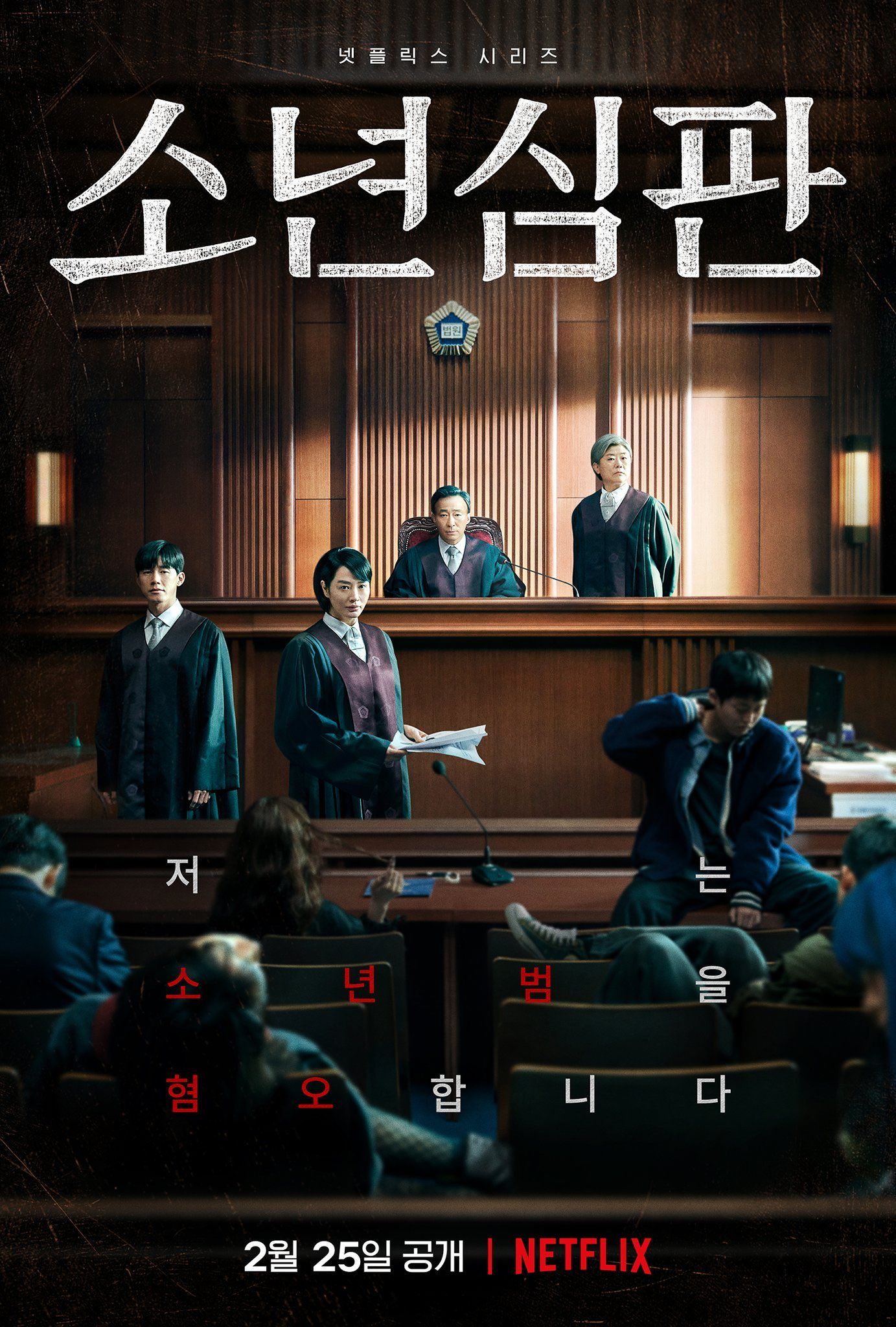[Drama Notes] The struggle and contradiction of protecting or indulging South Korea's "Juvenile Law" - "Juvenile Court"
Title: "Juvenile Court" (소년심판)
Language: Korean Number of episodes: 10 (a total of ㄧ seasons)
Year on air: 2022
If you are paying attention to Korean issues, you will definitely understand that school bullying has become a problem that Korean society cannot ignore. Although school bullying is already a common occurrence in Korean dramas, "Juvenile Court", which will be launched on Netflix in 2022, may be a rare event that is not just "soda revenge", but a real in-depth discussion of juvenile-related legal and practical dilemmas and conflicts s work.
"Juvenile Court" starred Kim Hyun-soo, one of the protagonists of "Signal", with Lee Sung-min, who played Wan Nian's section chief in "Weisheng", and movie star Kim Moo-yeol. Minister-level judges who are preparing to develop into the political world with juvenile law, and relatively junior left-side judges who can empathize with juveniles. With three characters with different personalities, they not only present the struggles, contradictions and blind spots they face in the face of juvenile delinquents, but also present the issues behind the issue of juvenile delinquents, such as insufficient placement facilities and high-risk families, to the audience.

One of the highlights of "Juvenile Court" is its lively rhythm. The author has even seen a high evaluation of "no cold scenes" in other film reviews, and Li Shengmin is just like his performance in "Weisheng", which is extremely well presented. The role he played was an unselfish judge and a stern boss, but there was a moment of compromise when he had to bow his head to flatter. What surprised the author was the performance of Kim Hyun-soo, which was different from "Signal" and Lee Je-hoon who pushed the lines and emotions to the fullest. The lack of layers made the audience feel monotonous and tired quickly. Her performance in "Juvenile Court" The performance is much more restrained, and some emotional scenes also make the acting more three-dimensional this time.
The so-called "soda revenge" is specially used to describe the evil and evil retribution plot that feels refreshing like soda. Although it can make the audience feel resentful, it sometimes too beautifies the dark side of society, which leads to the seriousness of the problem being downplayed. . For the author, "Juvenile Court" breaks the myth that "the law will protect good people" to some extent, and then presents the true appearance of the law. At the same time, it also makes it easier for people to understand that solving the problem of juvenile delinquency is not simple Aggravated punishment can be solved.
"Juvenile Court" Story: Juvenile Law from Japan's Occupation Period
Today's South Korean Juvenile Law originated from the "North Korean Juvenile Order" during the Japanese occupation period in 1942. At that time, juveniles under the age of 20 were protected. After the liberation of Korea in 1958, the so-called "Juvenile Law" was also enacted in accordance with the previous law, and the definition of juvenile was revised to under the age of 19. In the history of more than 60 years, it has been revised as many as five times. The basic core is that even if they commit a crime, they will be punished relatively lightly and given opportunities to rehabilitate, and even be regarded as incapable of criminal conduct. This kind of intention has become the gold medal in the eyes of many people.
According to the data of the Korean National Police Agency, from 2016 to 2020, the proportion of juveniles who violated the law increased by 46%, while the recidivism rate was about 12%. mainstream opinion in society.
Like my work? Don't forget to support and clap, let me know that you are with me on the road of creation. Keep this enthusiasm together!

- Author
- More